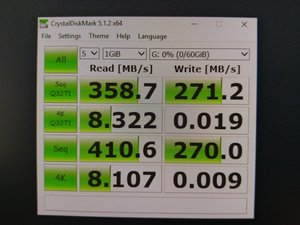I am looking to replace my 8350 system.
I have a new Lenovo laptop with decent specs. I've picked up a StarTech box to split the video to 3 monitors.
Now for storage.
I dont have much experience with windows networking beyond the basic peer to peer file sharing.
I have a decent netgear gigabit switch.
What are some good home use network attached storage units?
While my knee jerk response would be I want 4 drive bays the reality is two+ would work.
Over ethernet how is watching p... movies? How is watching movies over wireless ac1700?
Older games like the original (or current) StarCraft, would they launch/play ok?
At this time my switch has my Buffalo Router, Ryzen, 8350 and two printer plugged in. I dont see network congestion being a thing.
I have a new Lenovo laptop with decent specs. I've picked up a StarTech box to split the video to 3 monitors.
Now for storage.
I dont have much experience with windows networking beyond the basic peer to peer file sharing.
I have a decent netgear gigabit switch.
What are some good home use network attached storage units?
While my knee jerk response would be I want 4 drive bays the reality is two+ would work.
Over ethernet how is watching p... movies? How is watching movies over wireless ac1700?
Older games like the original (or current) StarCraft, would they launch/play ok?
At this time my switch has my Buffalo Router, Ryzen, 8350 and two printer plugged in. I dont see network congestion being a thing.
![[H]ard|Forum](/styles/hardforum/xenforo/logo_dark.png)
